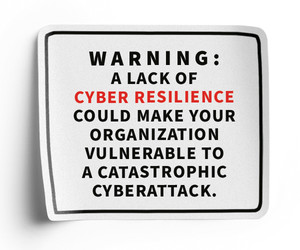The Federal Communications Commission voted Thursday to approve the establishment of the Schools and Libraries Cybersecurity Pilot Program. The program will provide up to $200 million over a three-year period to public schools and libraries for cybersecurity services and equipment.
FCC Chairwoman Jessica Rosenworcel proposed the pilot program for cybersecurity funding in July 2023. The proposal came in the wake of several federal government measures to investigate and improve cybersecurity in K–12 schools.
The new program will also provide the federal government with new cybersecurity data.
“We will use this effort … to study and better understand what equipment, services, and tools will help protect school and library broadband networks from cyberthreats,” Rosenworcel said in a statement.
“Ultimately, we want to learn from this effort, identify how to get the balance right, and provide our local, state, and federal government partners with actionable data about the most effective and coordinated way to address this growing problem,” she added.
Click the banner below to find cybersecurity solutions and resources for your school.
What Schools Need to Know About the FCC’s Cybersecurity Funding
Schools interested in applying for funding through this new initiative should “start planning now,” Amy Passow, business development manager for K–12 at CDW, said in an article. “Those selected to participate will then purchase their cybersecurity services and equipment, which will be reimbursed through the program.”
Schools should be prepared to take advantage of the new program, as the demand is expected to greatly exceed the available funds. The total demand for the pilot program could be greater than $823 million, according to Funds for Learning.
The organization also points out that “applicants who qualify for a 90% E-rate discount will have priority to participate in the pilot program.”
The FCC will model the application for this new funding after the current E-Rate system’s process. Funding will be available in four general categories:
- advanced and next-generation firewalls
- endpoint protection
- identity protection and authentication
- monitoring, detection and response
RELATED: Is managed detection and response a wise investment for K–12 schools?
The application will be divided into two parts. The first part will be a series of general cybersecurity questions for the school or library to answer.
If selected to move forward with the second part of the process, schools should be prepared to provide “more detailed information about the applicant’s current cybersecurity posture, training, and policies and history of cyber threats,” according to the Funds for Learning website.
“If you don’t have a cybersecurity plan, now is the time to create one,” Passow said. “If you have one and haven’t updated it in a while, now is the time to do that.”
Will New Funding Cover Needed Cybersecurity Upgrades?
While many leading organizations applaud the FCC’s adoption of the Schools and Libraries Cybersecurity Pilot Program, they are also quick to point out the small budget for a big problem.
Many referenced the program and its funding as a step in the right direction, rather than a solution to the cybersecurity challenges facing libraries and K–12 schools.
“This initiative … represents a significant step forward in safeguarding student information and protecting school and library networks from cyber-attacks,” said John Windhausen, executive director of the Schools, Health & Libraries Broadband Coalition, in an SHLB news release. “Despite our disappointment with the overly long three-year timeline and limited funding, this order is an important step in the right direction.”
In a Funds for Learning news release, CEO John Harrington also referred to the approval as the “initial steps to address the cybersecurity concerns of E-rate applicants.”
“This pilot program represents a crucial step in providing the resources necessary to safeguard sensitive information and maintain secure, reliable access to digital learning tools,” Harrington said.
The American Library Association released a statement by President Emily Drabinski, who called the approval an initial step for libraries and library workers facing escalating security and data privacy costs.
However, Drabinski added that the ALA will “remain steadfast in our call for a long-term funding mechanism that will ensure libraries can continue to offer the access and information their communities rely on.”
KEEP READING: What does the modern library look like for K–12 students?
Supporters of the program within the FCC likewise indicate that the School and Libraries Cybersecurity Pilot Program is a move toward a larger overhaul aimed at improving cybersecurity. “This Pilot will provide us with the information necessary to analyze whether and how the Commission should update our E-Rate program to help schools and libraries help themselves against the ongoing cyber threat,” said Commissioner Geoffrey Starks in a statement.












